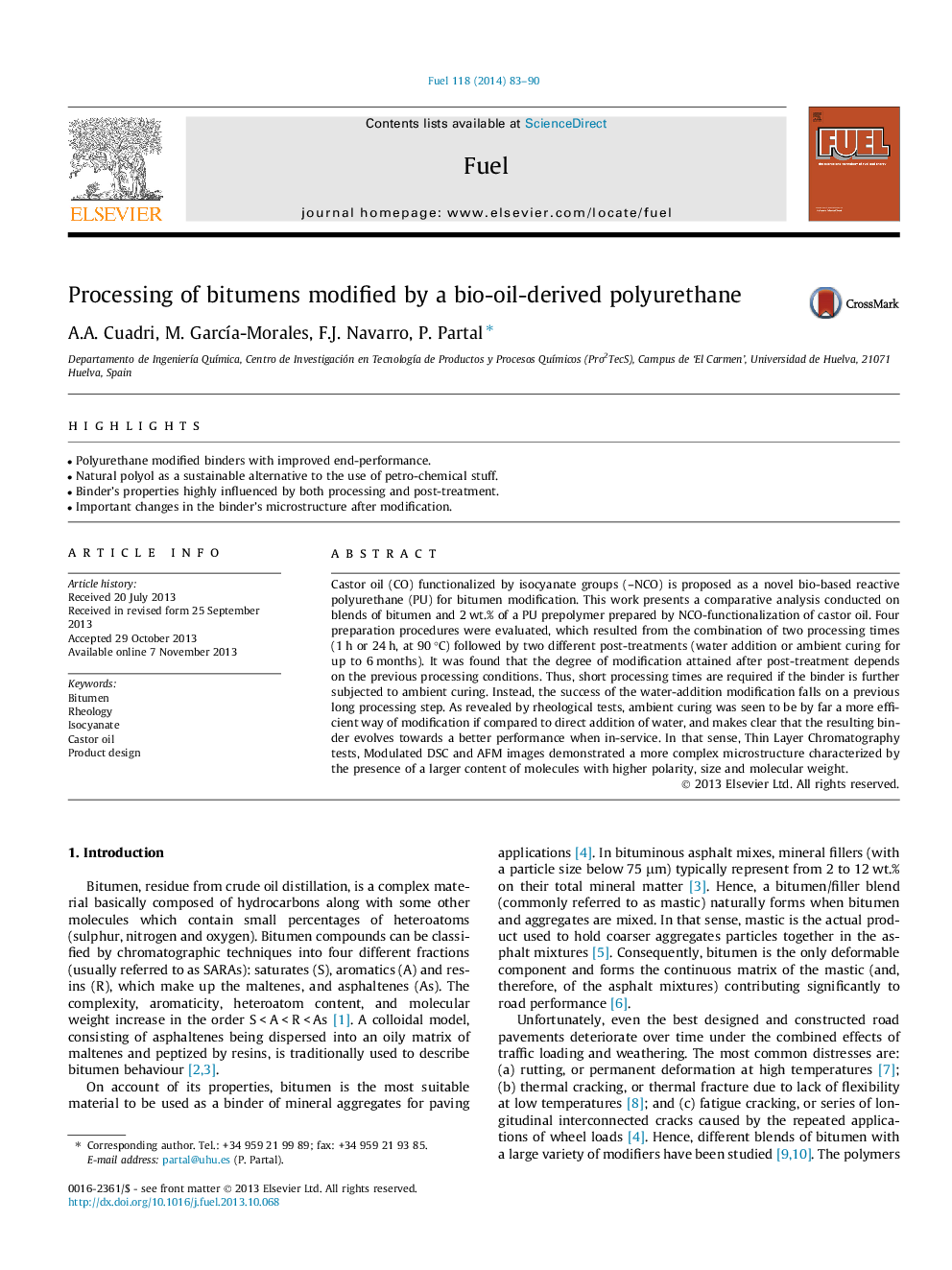| Article ID | Journal | Published Year | Pages | File Type |
|---|---|---|---|---|
| 6638397 | Fuel | 2014 | 8 Pages |
Abstract
Castor oil (CO) functionalized by isocyanate groups (-NCO) is proposed as a novel bio-based reactive polyurethane (PU) for bitumen modification. This work presents a comparative analysis conducted on blends of bitumen and 2 wt.% of a PU prepolymer prepared by NCO-functionalization of castor oil. Four preparation procedures were evaluated, which resulted from the combination of two processing times (1 h or 24 h, at 90 °C) followed by two different post-treatments (water addition or ambient curing for up to 6 months). It was found that the degree of modification attained after post-treatment depends on the previous processing conditions. Thus, short processing times are required if the binder is further subjected to ambient curing. Instead, the success of the water-addition modification falls on a previous long processing step. As revealed by rheological tests, ambient curing was seen to be by far a more efficient way of modification if compared to direct addition of water, and makes clear that the resulting binder evolves towards a better performance when in-service. In that sense, Thin Layer Chromatography tests, Modulated DSC and AFM images demonstrated a more complex microstructure characterized by the presence of a larger content of molecules with higher polarity, size and molecular weight.
Related Topics
Physical Sciences and Engineering
Chemical Engineering
Chemical Engineering (General)
Authors
A.A. Cuadri, M. GarcÃa-Morales, F.J. Navarro, P. Partal,
